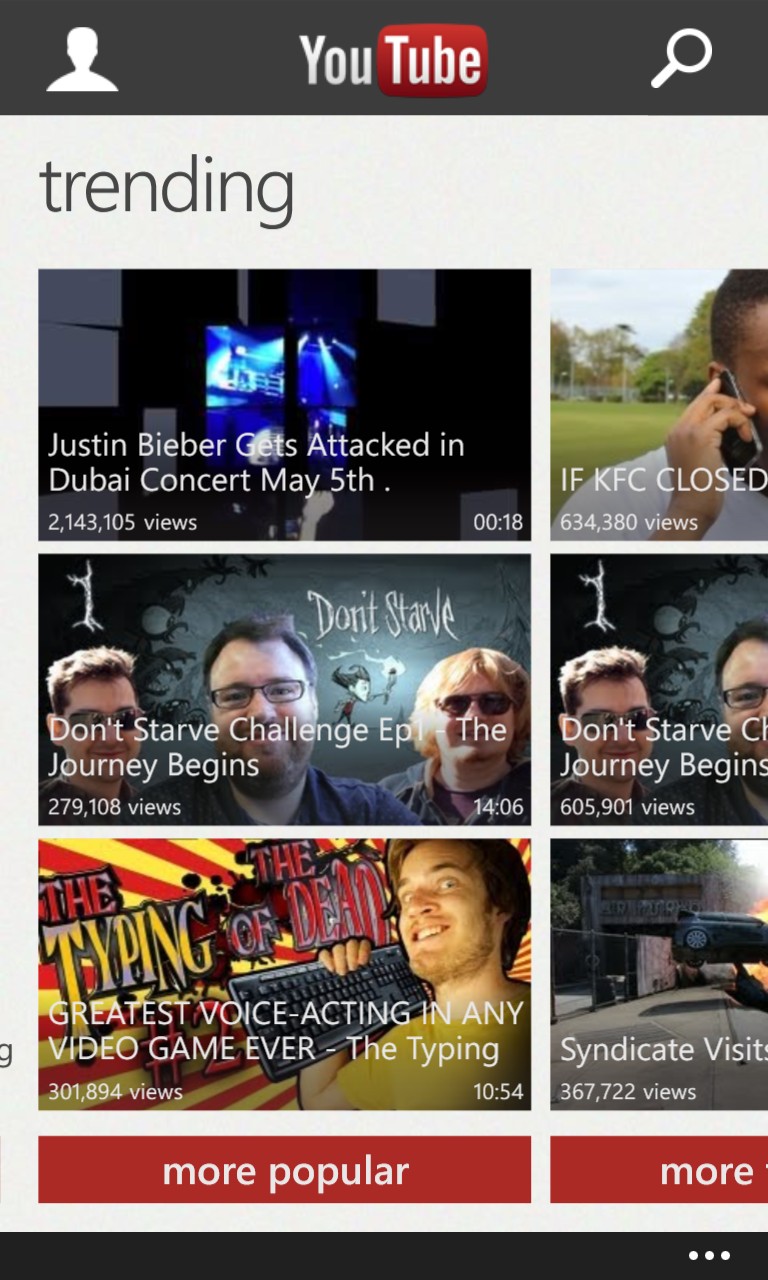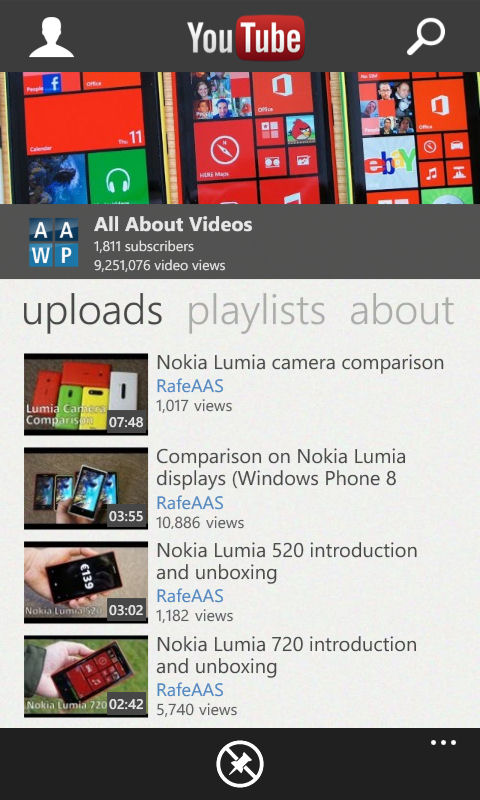

It's clear that Microsoft's YouTube app, lacking the official stamp of approval from Google, is in violation of YouTube's branding guidelines. This would also seem to apply to earlier versions of the app, about which Google has previously been silent. A careful reading of the appropriate documents also shows that Microsoft's YouTube app, in its current form, is also in violation of YouTube's terms of service. That's also true of a large number of third party apps on multiple platforms, though of course the majority of them are not created by big corporations.
The advertising issue, and the resultant impact it has on YouTube's content creators revenue, on the face of it is an area where Microsoft is more obviously in the wrong. In terms of public relations and perception Google has been savvy in putting this issue at the heart of its argument, because few would argue that Microsoft is doing the "right" thing by depriving content creators of revenues. On the other hand Microsoft would, we assume, be more than happy to create a compliant app, if it were able to do so.
However, as Microsoft has pointed out in the past, Google "has blocked Microsoft from offering its customers proper access to YouTube" by failing to offer the equal of API access on different mobile platforms. The most obvious example of this is the existence of the Android YouTube Player API (and related items), which does supports ads, but for which no equivalent exists for Windows Phone. Essentially, it is not possible for Microsoft, or any other third party, to create a feature rich YouTube app on Windows Phone that complies with YouTube's terms of service. That doesn't make it right for Microsoft to create such an app of course, but it does put Google's complaint in a rather different light.
It seems likely that Microsoft deliberately created and published the updated version of the YouTube app, knowing that it would likely draw a response from Google, but probably felt it had very little choice given the impasse over the equality of API access.
So is Google obliged to provide API equality between mobile platforms? That's not an easy question to answer. Google would contend that it can make its own decisions about what level of support to provide, and furthermore has previously stated that Windows Phone market share does not warrant the creation or investment in Google apps for the platform.
By contrast, Microsoft would contend that Google is intentionally degrading the YouTube experience (interoperability) on Windows Phone and by doing this it is seeking to leverage its dominant position in one market (web video) to give it a better position in another market (smartphones), something which is illegal under antitrust laws. Which side you come down depends on your point of view, but it's certainly true Google is facing regulatory scrutiny around similar issues in both Europe and the US.
Ultimately it is consumers who will likely suffer most in this dispute. Both Microsoft and Google deserve criticism over this issue, especially the way it has remained unresolved over the last two years, and it is hard to see it as anything other than the latest round of belligerency in the "war of ecosystems".
Update:
Microsoft has released a statement about Google's letter, confirming our assumption that it would be happy to create a YouTube app that included support for advertising if the necessary API support were available.
YouTube is consistently one of the top apps downloaded by smartphone users on all platforms, but Google has refused to work with us to develop an app on par with other platforms. Since we updated the YouTube app to ensure our mutual customers a similar YouTube experience, ratings and feedback have been overwhelmingly positive. We'd be more than happy to include advertising but need Google to provide us access to the necessary APIs. In light of Larry Page's comments today calling for more interoperability and less negativity, we look forward to solving this matter together for our mutual customers.
